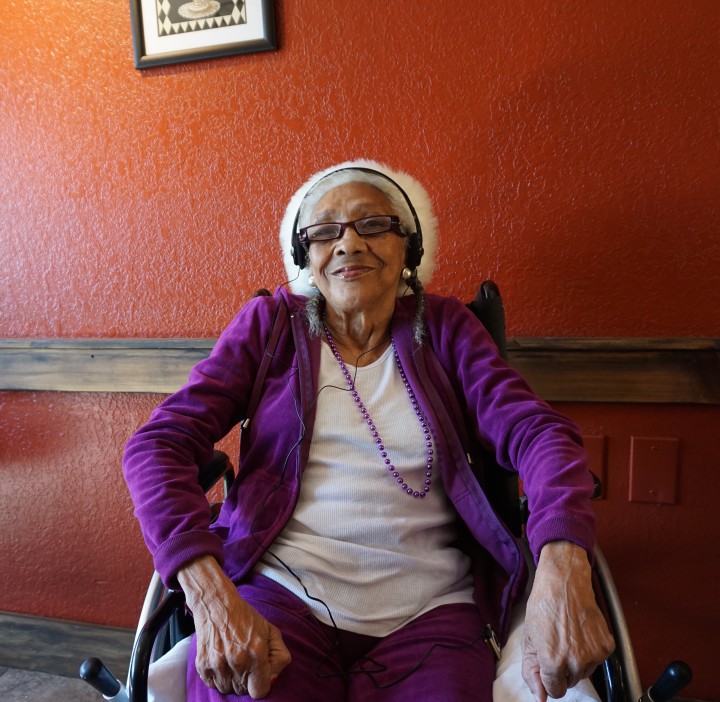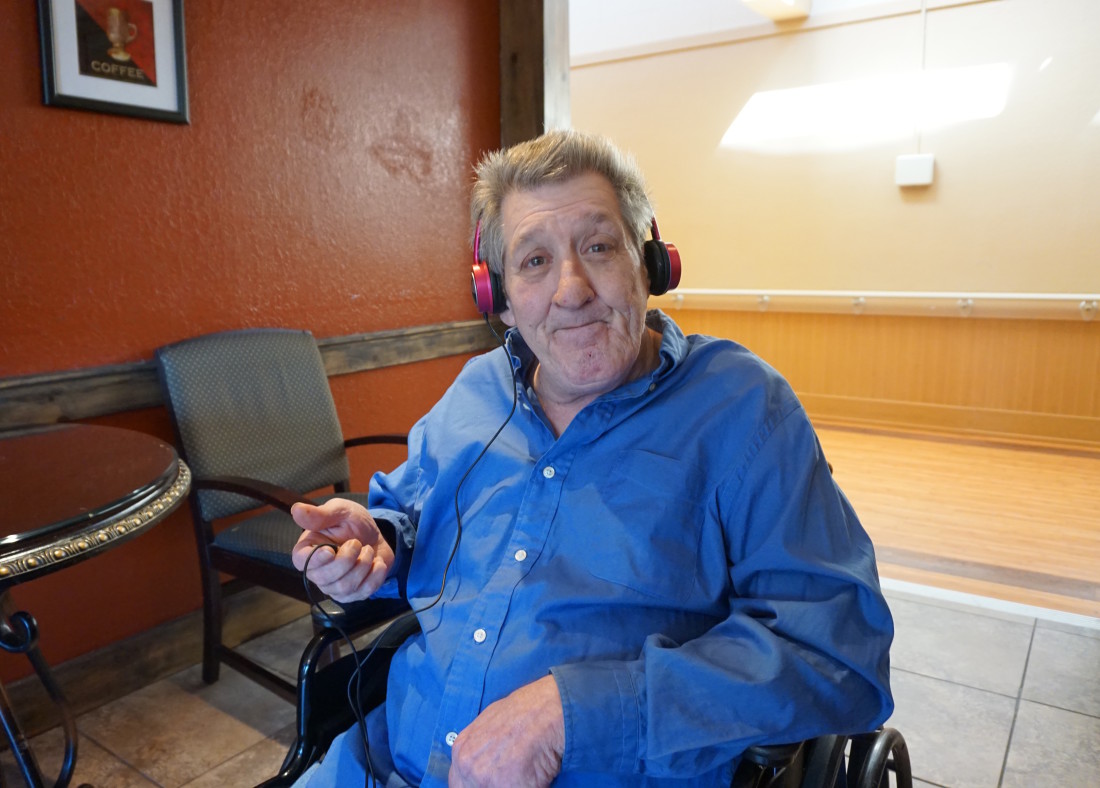Western medicine has traditionally overlooked music as a primary form of treatment, but with neurological research providing evidence of its positive effects, music-as-therapy is gaining ground. “Music is effectively being used in settings such as medical centers, intensive care units, rehab facilities and nursing homes to assist in rehabilitation from stroke, cardiac illnesses, psychological distress and other problems,” says Robert Swoap, licensed clinical and health psychologist and professor of psychology at Warren Wilson College.
Music’s therapeutic power has been evident for centuries, of course. In Music Therapy: An Introduction, author Jacqueline Schmidt Peters explains how the connections among music, religion and healing were prominent in many primitive tribal civilizations in Africa; how second-century B.C. Hindus marveled at the links among humans, music and the cosmos; how Aristotle valued music as an emotional catharsis; and how Plato described music as the medicine of the soul.
These days, music is particularly helpful in treating patients with Alzheimer’s and other forms of dementia. Music helps “in a variety of ways, including helping them become more oriented, less distressed and more communicative,” says Swoap.
This is significant: The World Health Organization claims that 47.5 million people across the globe have dementia, with 7.7 million new cases every year. Alzheimer’s disease is the most common cause of dementia and may contribute to 60 to 70 percent of the cases, according to the WHO.
A majority of these patients eventually make their way to long-term care facilities like nursing homes or assisted living facilities — a difficult but often necessary decision that families must make as their loved ones face deterioration in memory, thinking, behavior and the ability to perform everyday activities.
In Western North Carolina, people like ombudsman and former music therapist Ruth Price are there to help. She works for the Land of Sky Regional Council — a multicounty, local government, planning and development organization. Price also spearheads the Just Press Play: Awakening the Mind Through Music Coalition, a group that is working to establish individualized music in every long-term care facility in the area in an effort to improve the quality of life of residents.
“Just Press Play expands residents’ opportunities to listen to music, and it does so in an individualized manner,” says Price. “All people who are living in long-term care facilities have the right to have their individuality recognized and honored.”
“Individualized music” is integrated into the individual’s life and is based on personal preferences. “Not only does personalized music increase a person’s awareness, it reduces the use of potentially damaging medications such as antipsychotics and the aggressive behaviors that can lead to the use of these medications,” says Price.
At least one Asheville long-term care facility, Stone Creek Health & Rehabilitation, has recently established an individualized music program with help from Land of Sky and volunteers from Warren Wilson College. Thanks to Swoap’s recommendation, the program has been up and running since August.
“Our students are terrific,” says Swoap. “They’re meeting one-on-one with residents of Stone Creek weekly in order to provide support via conversation and music. They learn from the residents and/or family members what kind of music is most appealing to them and create individualized playlists that can then be downloaded onto a personal music player, like an iPod. They can connect to the residents and talk to them about memories and experiences that help them feel alive and appreciated.”
Two Stone Creek residents are especially enjoying the recently initiated music program. Sixty-one-year-old Billy Campbell and 78-year-old Lula Penland joyfully bob along to the music pouring through their respective headsets.
Campbell, who has been diagnosed with an unspecified case of dementia, listens to a playlist that contains songs by Elvis Presley, Led Zeppelin, Van Halen and The Beatles. “I love rock ‘n’ roll,” says Campbell, nodding to the beat as Elvis sings “Burning Love.”
Penland, diagnosed with Alzheimer’s disease, peacefully grooves along to music playing from her yellow iPod Shuffle. Her favorite artists date from the Motown era, and her personalized playlist includes songs from Marvin Gaye, The Supremes, Jimmy Ruffin, Four Tops, Smokey Robinson, The Marvelettes and The Jackson 5.

Both Price and Swoap mention the importance of properly training volunteers and staff involved in music programs, in part because music can trigger both positive and negative emotions and memories.
“If you simply put an iPod on a patient’s head and walk away, you are doing a disservice and potentially causing harm,” says Swoap. “Volunteers need at least minimal training in order to work with the residents collaboratively. And if the patient can’t communicate, then it’s even more important to closely monitor the reaction when music is provided. In some settings, like an ICU, the staff will monitor vital signs as music is being played to assess the impact of the intervention,” he says.
Individualized music, although therapeutic and beneficial in many ways, should be differentiated from clinical music therapy, Price notes. “As with any profession, it is important to identify standards of practice that make something a profession as opposed to something being provided by a person without similar or equal credentials,” she says. Price also emphasizes that music therapy “is the use of music by a board-certified music therapist in a clinical manner.” Further, those certified possess at least a bachelors’s degree in music therapy as well as more than 1,000 hours of clinical training.
“Some facilities do offer music therapy, but very few will incur the expense,” Price adds. “Facilities are required to offer therapeutic activities, which is where the therapeutic use of individualized music such as the music and memory program and Just Press Play falls. There is no reimbursement to facilities for music therapy and no requirement for it to be offered.”
“It would be great if every long-term care facility had access to a certified music therapist,” says Swoap. “In the end, it would likely save money by improving the quality of life of the residents, reducing the need for some medications, etc. Unfortunately, music therapy is not typically reimbursed in long-term care settings. And to bill private insurance, a music therapist will have to prove the need on a case-by-case basis. It’s sad, but it is not a good reimbursement climate for these very important and useful services.”
Until then, “an individualized music program is a positive step in improving the quality of life of residents of long-term care facilities,” says Swoap. “The residents in our pilot are almost uniformly responding positively to the program. I just wish that music therapy was as easily reimbursed as clinical psychology or medical services provided by an M.D.”
WHAT: Just Press Play: Awakening the Mind through Music Coalition workshop. This event will provide specific steps for implementing an individualized music program in a long-term care facility. Facilities that attend the workshop are eligible to receive a grant to partially fund the program. The public is invited to this event.
WHERE: Land of Sky Regional Council, 339 New Leicester Hwy., Suite 140, Asheville
WHEN: Thursday, Dec. 1, 8 a.m. to 12:30 p.m.
Donate to the Music as Medicine program.
StoneCreek is collecting unused iPods, headphones, iTunes gift cards and CDs to reconnect elders to the world around them through their favorite music.
Donations can be dropped off at the following locations:
StoneCreek Health & Rehabilitation, 455 Victoria Road
Harvest Records, 415 Haywood Road
Moog Music, Inc., 160 Broadway
Musician’s Workshop Inc., 319 Merrimon Ave.
Skinny Beats Drum Shop & Gallery, 4 Eagle St.



Before you comment
The comments section is here to provide a platform for civil dialogue on the issues we face together as a local community. Xpress is committed to offering this platform for all voices, but when the tone of the discussion gets nasty or strays off topic, we believe many people choose not to participate. Xpress editors are determined to moderate comments to ensure a constructive interchange is maintained. All comments judged not to be in keeping with the spirit of civil discourse will be removed and repeat violators will be banned. See here for our terms of service. Thank you for being part of this effort to promote respectful discussion.